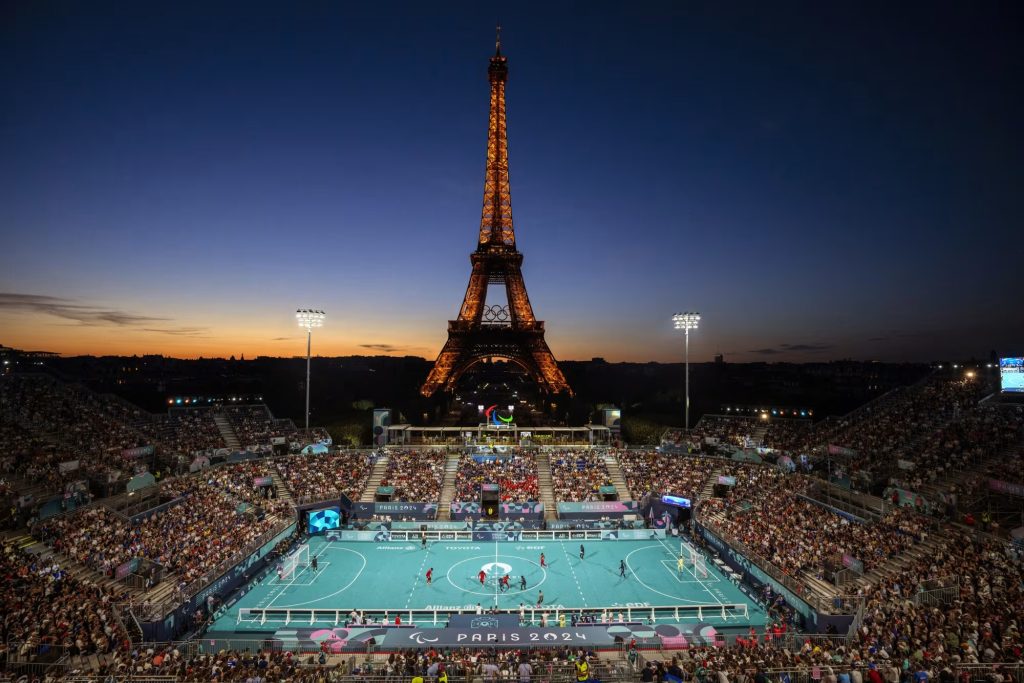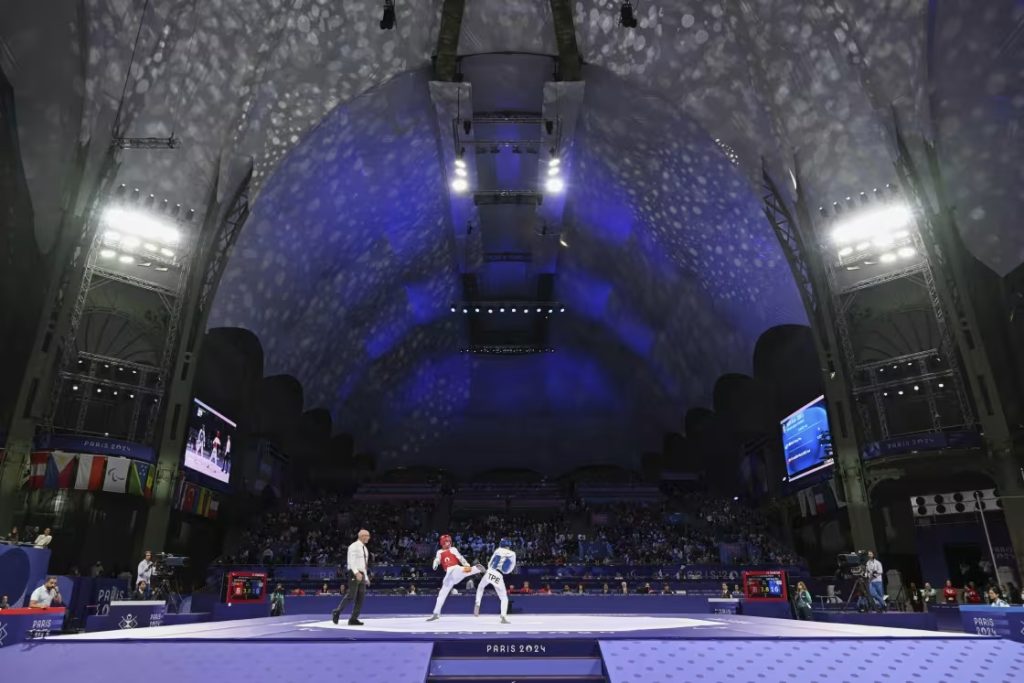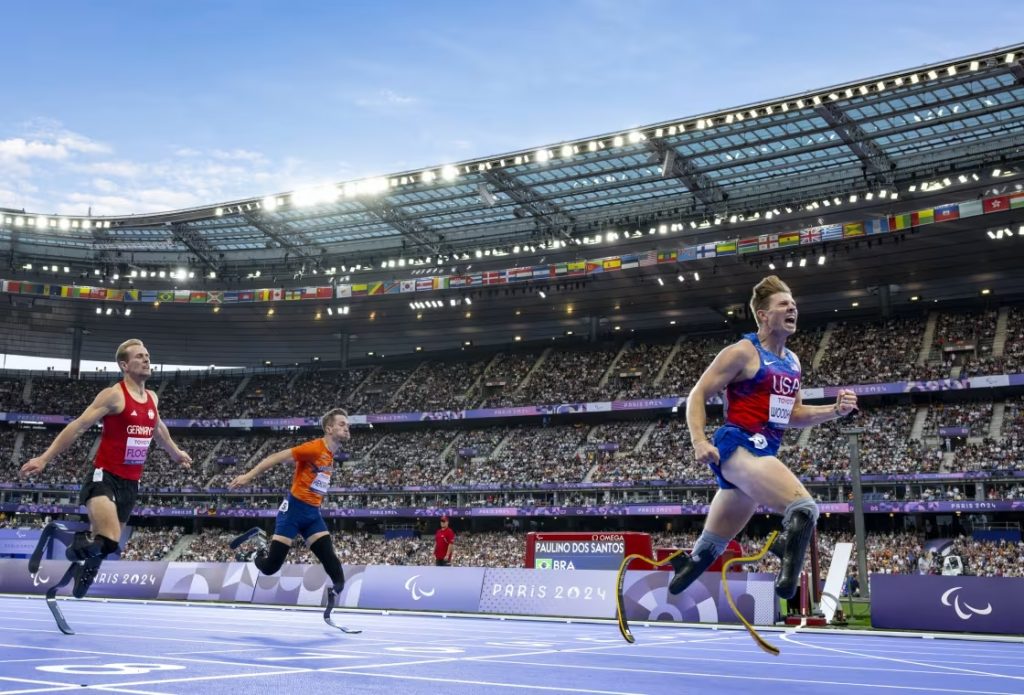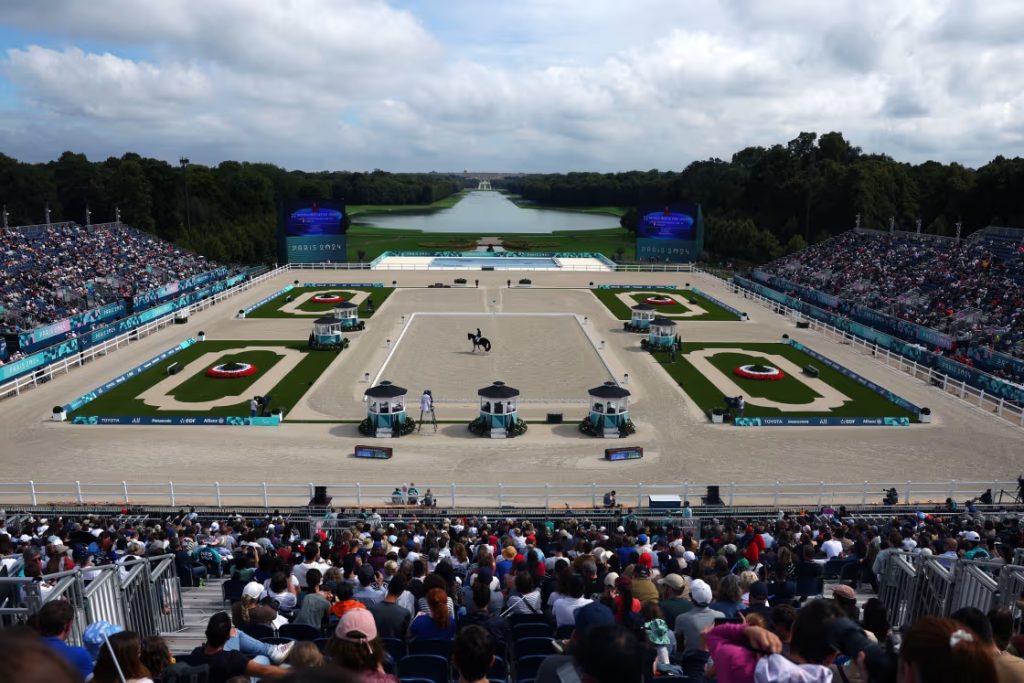PARIS — From Blind Soccer under the Eiffel Tower to Para Taekwondo at the Grand Palais and Para Equestrian in the gardens of Versailles, the City of Light has beautifully showcased Paralympic excellence.
But it’s the atmosphere in Paris that will truly give you chills.
The Stade de France has been packed nightly with tens of thousands of spectators, creating an electrifying ambiance, fueled not just by the dazzling purple track.
On Tuesday, 19-year-old Ezra Frech ignited the crowd with a stadium-wide slow clap during his high jump event. His incredible leap of 1.94 meters was met with thunderous applause, and through his tears, he declared himself “the happiest man alive.”

Earlier in the week, Frech’s coach, Roderick Townsend, competed in a different classification and earned his fourth gold medal. Nick Mayhugh, Townsend’s roommate in the athlete village, cheered with a loud “LET’S GOOO” every time Townsend cleared the bar. Townsend described the stadium’s energy as “unmatched” and noted that the atmosphere was “night and day” compared to Tokyo and Rio.
After breaking the world record in the 100m, Jaydin Blackwell called the atmosphere “surreal,” exclaiming, “I don’t think I’ve ever been in a stadium like this!”
And he’s not alone in that sentiment.

With over two million tickets sold, these Paralympic Games are attracting some of the largest crowds many athletes have ever faced, particularly those who are new to the world stage or who had only competed during the pandemic.
Viewership from home is also soaring. Nielsen data from August 28 to September 7 reveals that the average viewership across Peacock, NBC, USA Network, and CNBC was 231,000, marking a 125% increase from the Tokyo Paralympics.

In a heartwarming moment, a video of Paralympian Hunter Woodhall cheering for his wife Tara during her long jump at the Olympics amassed nearly 20 million views on Instagram. This past Friday, the roles reversed as Hunter won gold in the 400 meters, with Tara jubilantly cheering him on from the stands.
Just weeks after winning two gold medals and a silver at La Défense Arena, Olympian Kate Douglass returned to Paris to support her friend, Ali Truwit, who recently earned two silver medals at the Paralympics. Douglass was taken aback by the level of excitement, commenting, “I knew there would be a crowd, but seeing the stands almost full was super cool.”

At the Eiffel Tower, the atmosphere during Blind Soccer is uniquely dynamic. The crowd remains silent to help visually impaired players listen for the soccer ball, which has bells inside it, and to follow cues from their sighted goalkeepers and coaches. Occasionally, a silent wave of movement sweeps through the stadium, but when a goal is scored, the roar from the packed stands is deafening. Argentinian Paralympian Matias Olivera noted that fans are often surprised by the game’s fast pace.
Charles E. Catherine-Caldaro, captain of the U.S. Blind Soccer Men’s National Team, has attended numerous games and uses a Vision Pad to track the action. This device mirrors the play on the field in real-time and vibrates during key moments like fouls and goals. The French-American athlete finds it useful for scouting opponents as the U.S. prepares to build its first team for the 2028 Los Angeles Summer Games.
“It’s the first time in my life that I actually feel cool being blind,” he said. “And that’s a feeling I want to bring home with me.”

